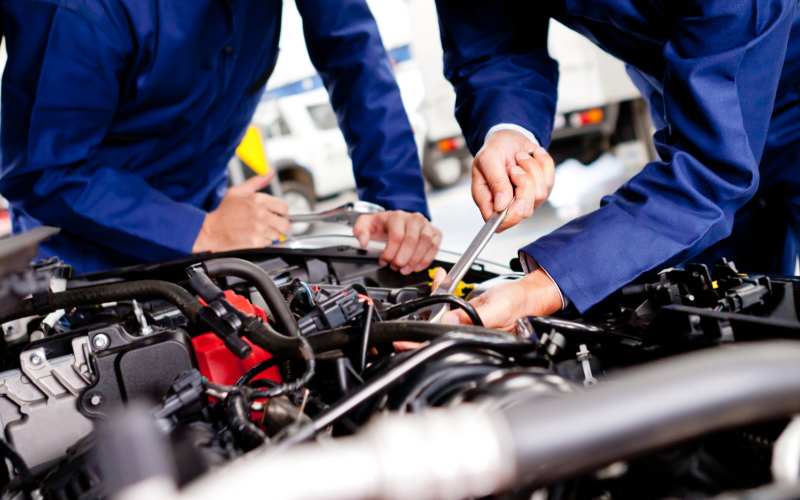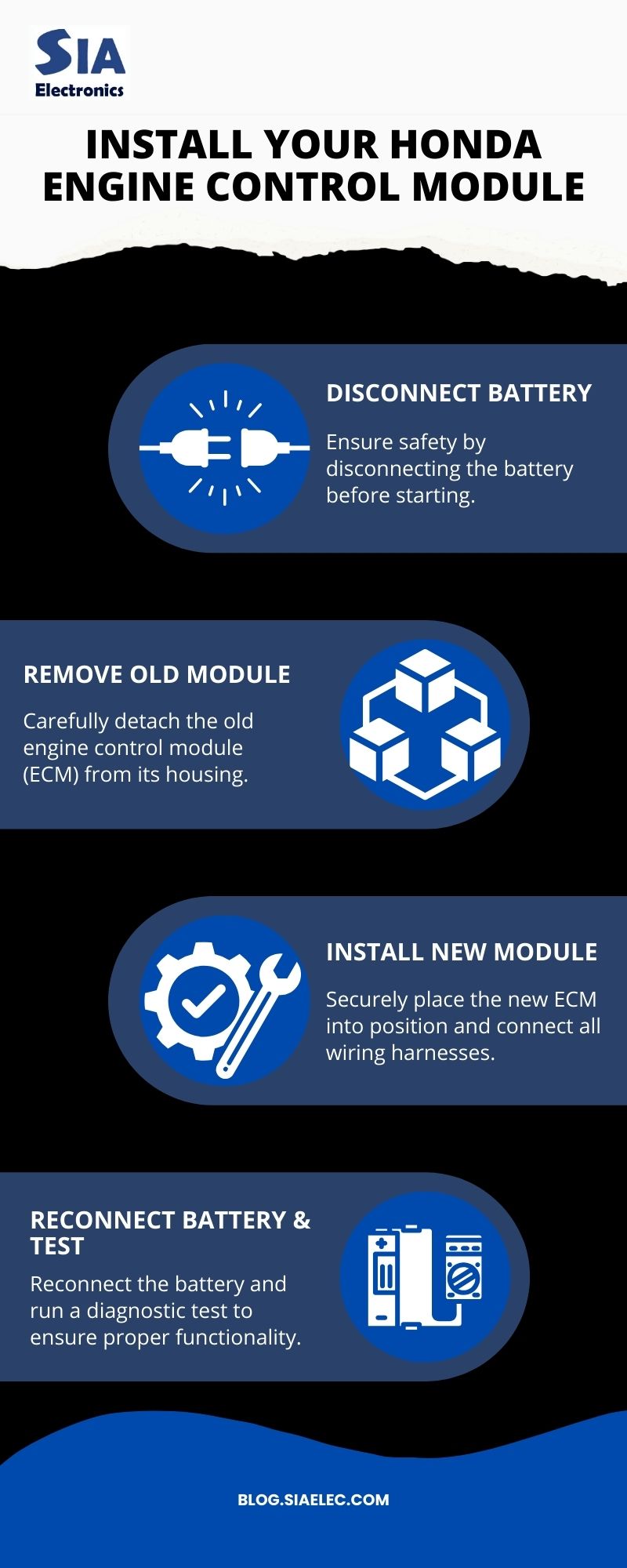Honda Engine Control Module in : A Comprehensive Guide
Looking to learn more about your Honda's engine control module? You've come to the right place!
Looking to learn more about your Honda's engine control module? You've come to the right place!
Are you in the market searching for a new Honda Engine Control Module (ECM)? Or maybe you're just curious about what this small but mighty piece of your vehicle does? Either way, you've visited the right place. This guide is for you, whether you're a seasoned mechanic or a DIY enthusiast looking to learn more about your Honda's engine control module.
Choosing the right Honda engine control module can be an arduous task—after all, it's not everyday that you shop for one. But don't worry; we've got you covered.
First and foremost, know your Honda model and year. Engine control modules are not one-size-fits-all. A module for a 2005 Honda Accord won't fit in a 2018 Honda Civic. So before you start shopping, get familiar with your Honda and check the model and year.
Next, consider whether you want a new or refurbished ECM. New modules provide the latest technology and fewer headaches about malfunctions. However, they can be a bit on the pricey side. Refurbished modules, on the other hand, have been used before but are restored to perfect working condition. They're often much cheaper and can be a great way to save some cash.
Check the warranty before you make a purchase. A good warranty ensures that you're covered if there are any defects or malfunctions with your ECM. It's a little peace of mind that can go a long way.
Lastly, consider the brand. While there are many manufacturers of engine control modules, not all are created equal. Look for brands that are well-reviewed and trusted in the industry.
The Honda engine control module plays a critical role in how your vehicle performs. It's essentially the brain of your Honda, controlling everything from fuel injection and emission systems to ignition timing and transmission. So when it comes to finding the right one, don't settle. Whether you're a Honda Accord driver or a Honda Civic enthusiast, take the time to find the perfect fit for your car. After all, your Honda deserves the best, doesn't it?

Now that you've selected the perfect Honda engine control module, the next step is to install it. But before you lift your toolbox and dive in, let's go through a few important points.
First off, be sure to disconnect the battery. You don't want any electrical surprises while you're working on the ECM, right? Before starting the repair, disconnect the battery.
Next, locate your current ECM. Its location can differ depending on your Honda model and year. It's often found under the hood or the dashboard. If you're having trouble finding it, your vehicle's manual should be able to point you in the right direction.
Once you've found it, carefully remove the old module. You'll usually have to unplug a few connectors and unscrew the module from its place.
Now, you're ready to install the new module. Simply reverse the removal process—secure the new module in place, reconnect the connectors, and you're good to go!
Lastly, reconnect the battery and start your Honda. If the engine light stays off and your Honda runs smoothly, then congratulations—you've successfully installed your new Honda engine control module.
Remember, while it’s certainly doable to install the ECM on your own, don’t hesitate to call a professional if you're unsure about any step. There's no shame in seeking professionals assistance—especially when it comes to the brain of your Honda. After all, you want your vehicle to be running at its absolute best, right?
Stay tuned for part three of our guide, where we'll dive into common Honda engine control module problems and how to troubleshoot them. Even the best ECMs can run into issues occasionally. Don't worry, though; we've got your back!
Alright, you've installed your Honda engine control module, and everything seems fine. But then, one day, your Honda starts acting up. What could be the problem? Well, it might be your ECM.
Firstly, let's talk about check engine light. This little light is like a cry for help from your Honda. If it's on, your ECM might be detecting a problem. Grab an OBD2 scanner, plug it into your Honda, and see what trouble codes it shows. This can give you an idea of what's going wrong.
Next up, poor fuel economy. Have you noticed that your Honda is guzzling more fuel and you're making more trips to the gas station than usual? If your ECM is malfunctioning, it may not be controlling fuel consumption properly, which can lead to decreased fuel economy.
Another common problem is engine performance issues. Is your Honda's engine running rough? Is it misfiring or stalling? These could be signs of a faulty engine control module.
Lastly, we have starting problems. If your Honda is having difficulty starting or won't start at all, your ECM could be to blame. The ECM controls the ignition system, so a problem in the ECM could prevent your Honda from starting.
Remember: these are just potential signs of a troubled Honda engine control module. There could be other reasons for these issues. So, if you're experiencing any of these problems, it's worth taking your Honda to a professional to get a proper diagnosis.
Up next, we’ll discuss how to maintain your Honda engine control module so you can avoid these problems in the first place and keep your Honda running smoothly for years to come. Stay tuned!
So, you're not just concerned about fixing your Honda engine control module; you want to make sure it lasts long, too. Smart move. With proper care and maintenance, your ECM can give you years of trouble-free service. Let's get into it.
Don't skip out on those regular maintenance checks. Regular oil changes, filter replacements, and tune-ups can keep your Honda in top shape, and that includes the ECM. It's like getting a regular check-up at the doctor's — preventative care is the best way to avoid bigger problems in the future.
Believe it or not, your car's battery can impact the longevity of your ECM. If your battery is running low or is on its last legs, it can cause voltage fluctuations that may damage the ECM. Keep an eye on your battery's health and replace it when necessary.
Heat is the enemy of electronics, and your Honda engine control module is no exception. Make sure your Honda's cooling system is working effectively to keep engine temperatures in check. Nobody wants a fried ECM!
Water and electronics are not the best of friends. There is no relationship between them. Ensure your ECM is well protected from moisture. Regularly check for any leaks in your vehicle that could lead to water damage.
So there you have it! By following these tips, you can extend the life of your Honda engine control module and keep your Honda purring like a kitten. Because, let's face it, we all want our cars to last as long as possible, right?
